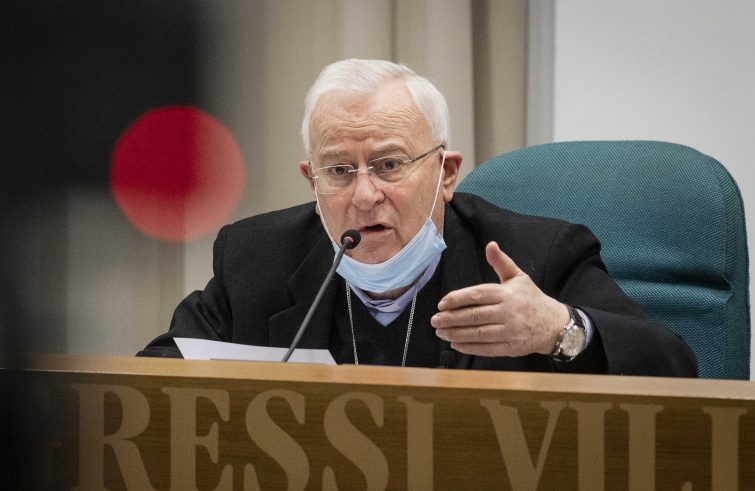
“We must keep our feet on the ground and map out the way forward with realism”: this was the commitment taken on by Cardinal Gualtiero Bassetti, archbishop of Perugia-Città della Pieve, President of the Italian Bishops’ Conference, in his inaugural speech of the Italian bishops’ Permanent Council, which opened today. “We have confidence in the vaccination campaign, conducted with seriousness and careful prudence”, was the Cardinal’s invitation in this time of pandemic, the overcoming of which requires “urgent decisions and strong political responsibilities”, first and foremost “to respond to citizens’ and families’ needs, starting with the most vulnerable.”
In the central part of his address, Card. Bassetti called on “those with political and administrative roles at all levels, from mayors to the highest government echelons”, “to ensure that – while respecting their different roles and positions – unity of purpose will prevail alongside continuous efforts to identify the most appropriate responses to the needs of citizens and families, starting with the most vulnerable.”
“Implementation of the vaccination campaign and support to the economic system to prevent a worsening of the crisis with additional repercussions on employment and, ultimately, on family incomes”,
are the tasks for the new government, “which can count on a large parliamentary majority” and, with respect to the pandemic, also on the logistical availability of the Church’s “facilities.” Moreover, for the Italian Church, “the Italian people need to see encouraging signals from the educational system. In fact, while online learning has certainly been an alternative to the closure of schools, it does not replace the need for human and educational relations that schools guarantee to our youths.”
“Remote learning has spotlighted the painful gap that exists throughout Italy, both in the North and in the South, not only in terms of digital technology, which prevents all our children from enjoying the right to education under equal conditions,” the Cardinal said, while calling for “action to support these children, and not to accept an insurmountable disparity: on the one hand, some can count on a supportive family network and on the possibility, also financial, of compensating for any shortcomings; but many others are left alone, and risk being swept away into the depths of early school dropouts.”
The new Government’s commitment to “pursue ecological transition” is to be welcomed, provided, however, that “ideas are accompanied by concrete decisions”, including measures aimed at “reviving the labour market” and at curbing the emigration of young people forced to abandon the country’s inland areas as a result of unemployment.
Over 100,000 people have died from COVID-19 in Italy to date, recalled the president of the Italian Episcopal Conference who said that the pandemic has caused “a worrying slowdown or postponement of other routine activities including preventive screening and, in some cases, actual treatment”, was Cardinal Bassetti’s cry of alarm. This causes “suffering in the midst of suffering, which should not be forgotten or underestimated, and whose consequences we will unfortunately be seeing in the coming years.”
“The vaccines represent a glimmer of light at the end of the tunnel, and we are aware that vaccination, as was the case for other diseases in the past, is the way out of the present situation”,
noted the Cardinal, remarking that the Church is making available her “facilities” for the ongoing vaccination campaign. At the same time, we see a widening “poverty gap”. Almost two million people were assisted by diocesan and parish Caritas over the past year, while the economic crisis, a consequence of the health crisis, “has brought many small businesses and families to their knees, proving to be fertile ground for the growing tentacles of usury, crime and the mafias.”
“In this situation, it is necessary to avoid the Mafias appearing as benefactors through a parallel economy and the use of so-called ‘criminal welfare’, which the underworld offers to the most disadvantaged”, was the appeal in the wake of the National Anti-Usury Council.
“To be together”, “to work together” and “to walk together.” For the president of the Italian Bishops’ Conference, these are the three guidelines for the Italian Church’s “synodal journey”, requested by Pope Francis on 30 January last, in order to pursue the path set out by the Holy Father during the Florence Conference in 2015. The Pastoral Note “The missionary face of parishes in a changing world” (30 May 2004), referring to the Pastoral Guidelines for the first decade of 2000: “Communicating the Gospel in a changing world” is a further frame of reference. The “secret of” synodality, Card. Bassetti concluded, is “the interaction between grassroots and summit, centre and periphery”. This is where our churches’ future flows.










